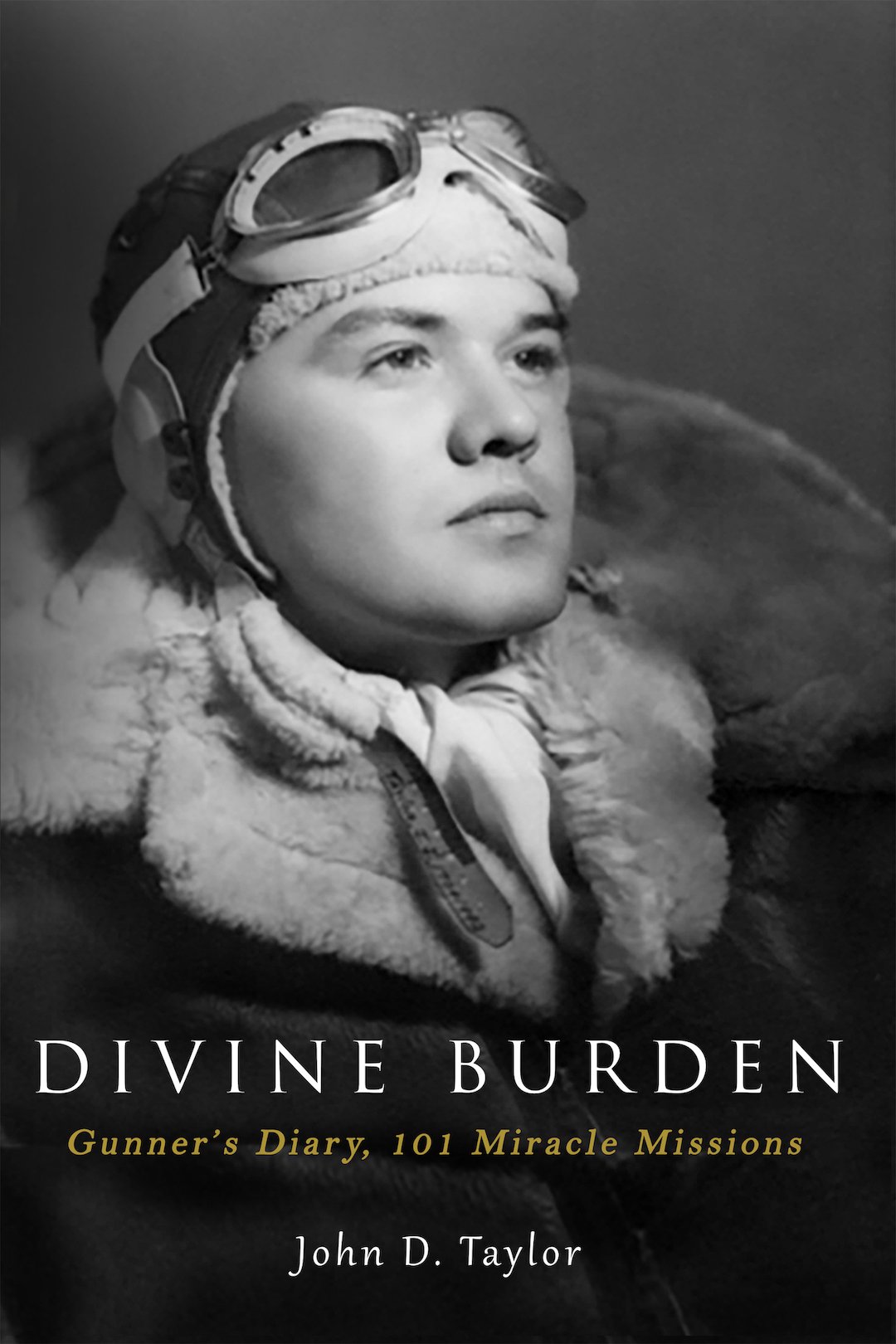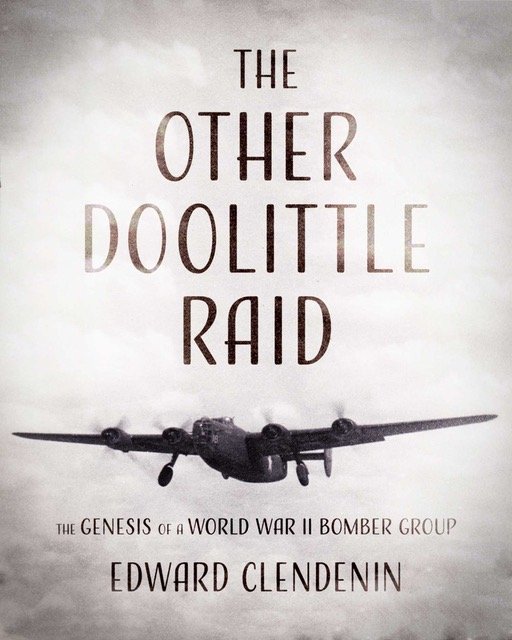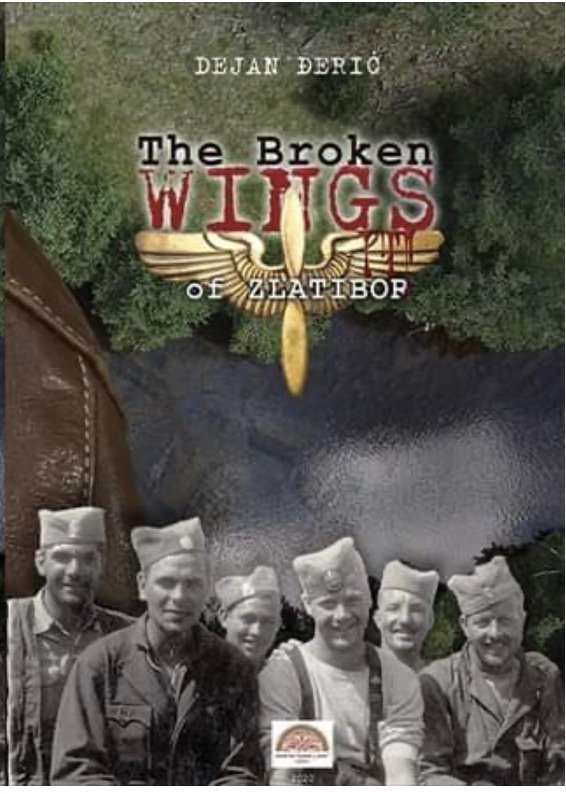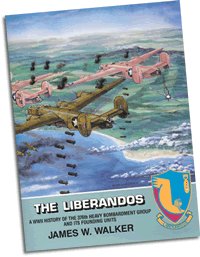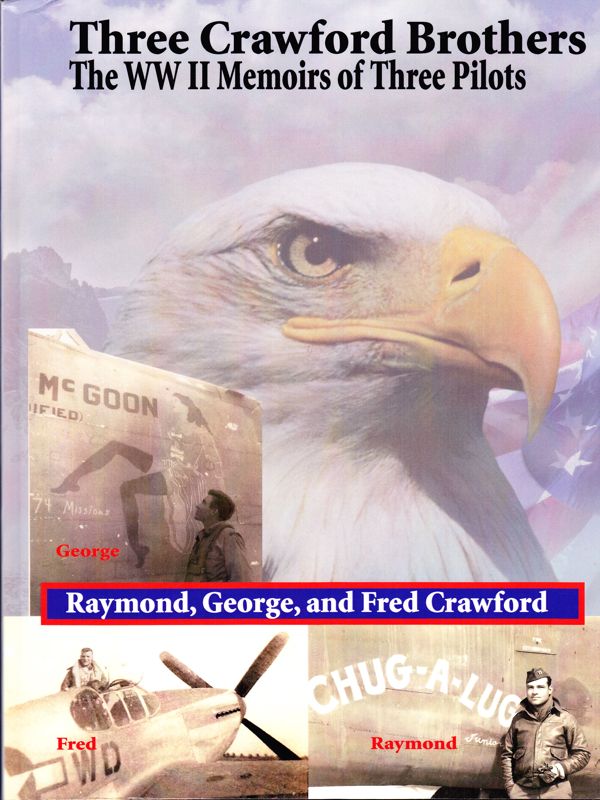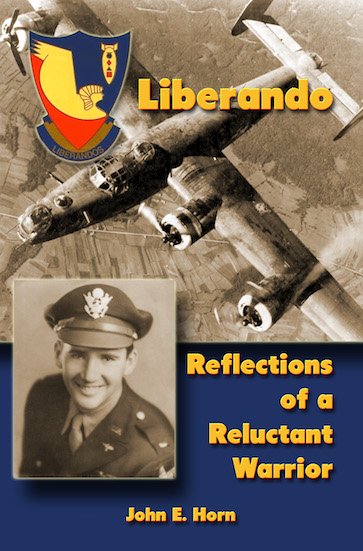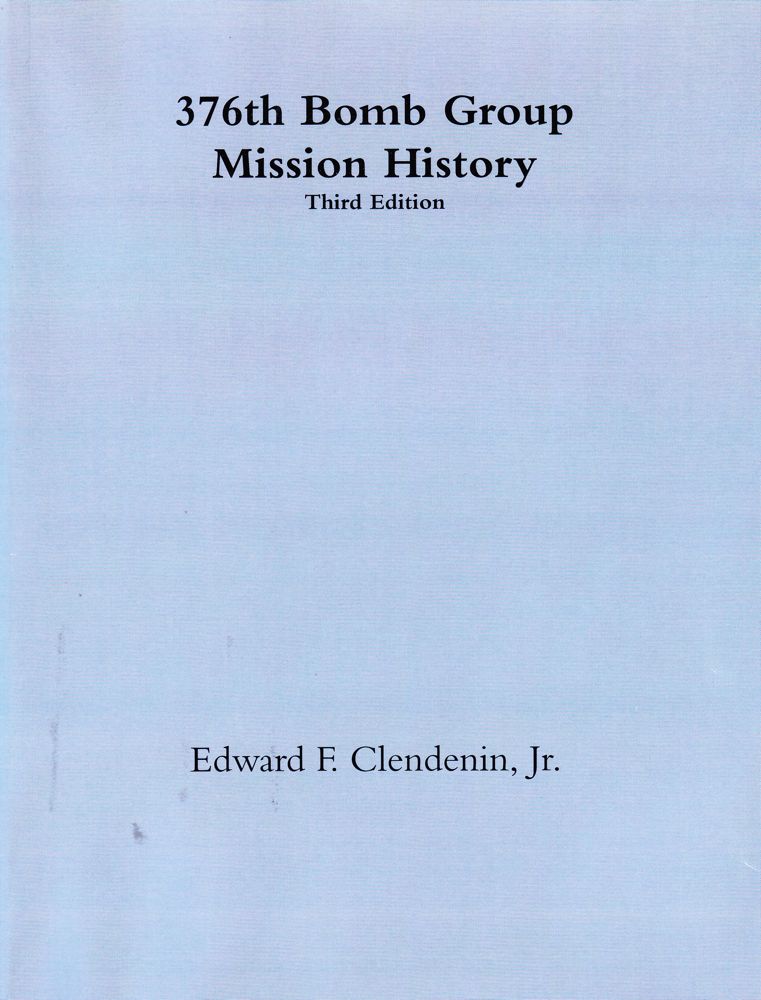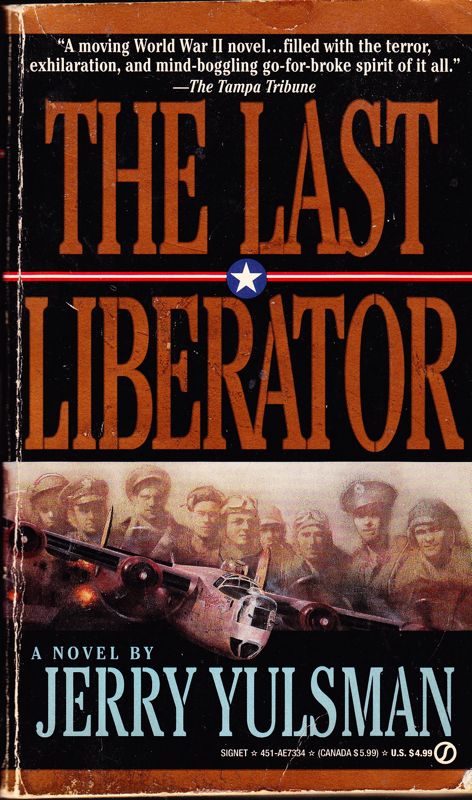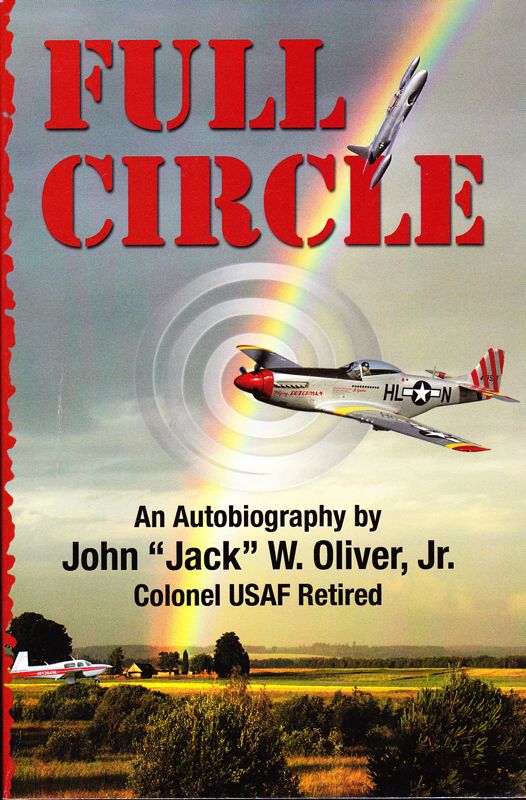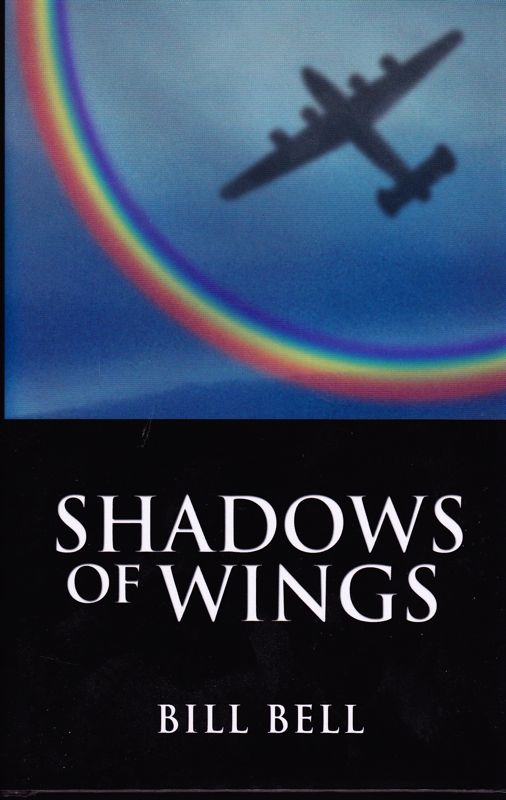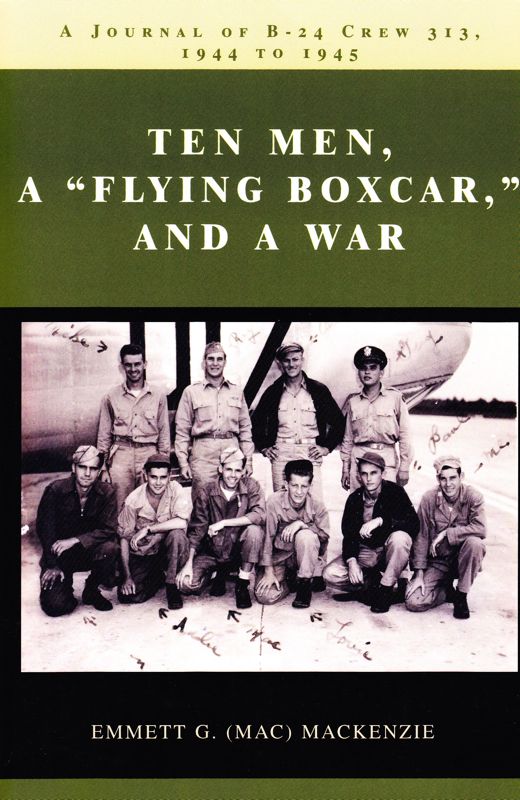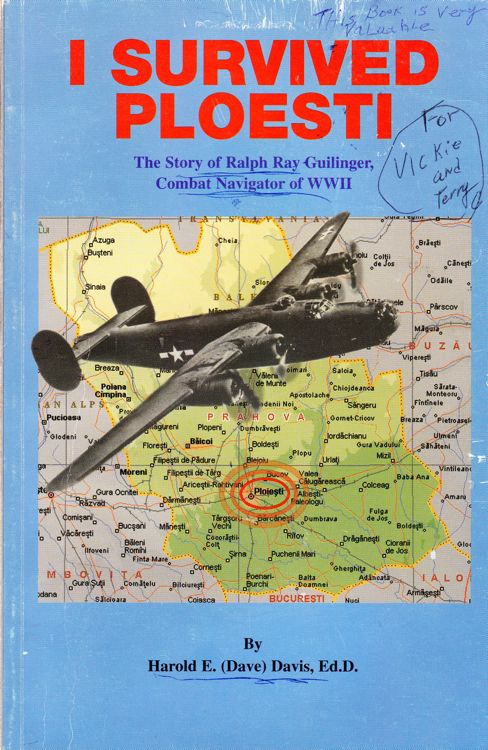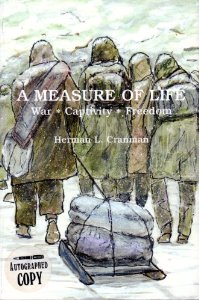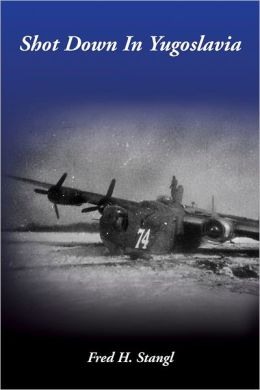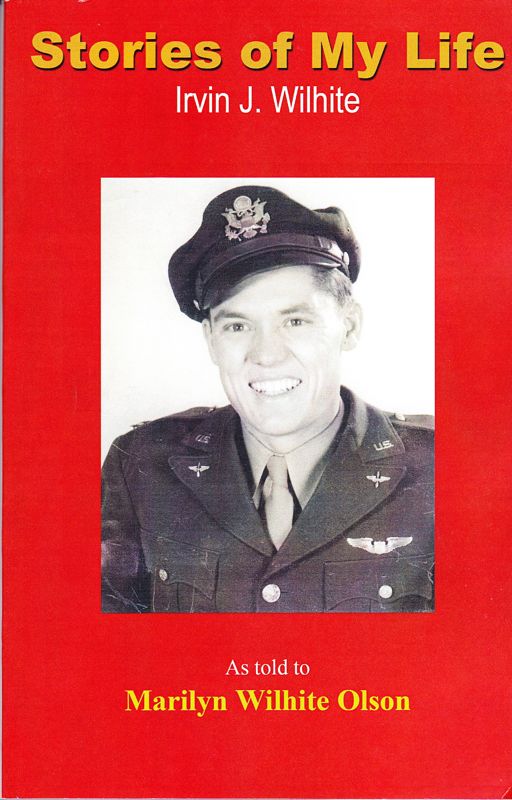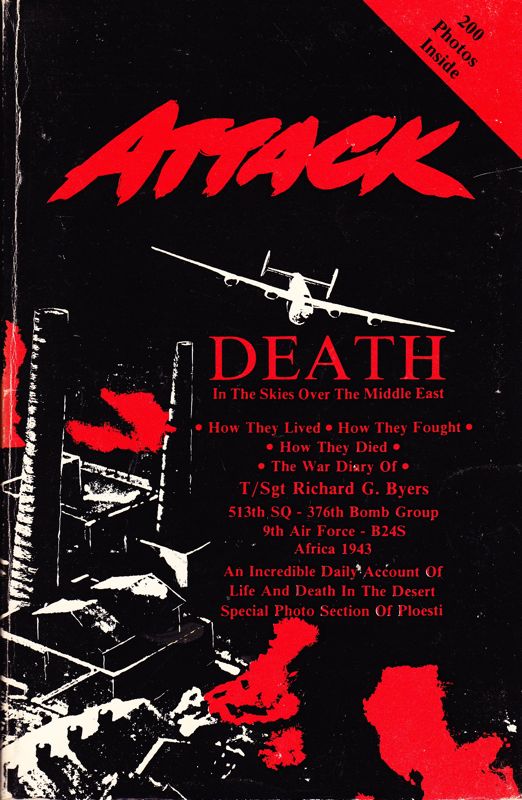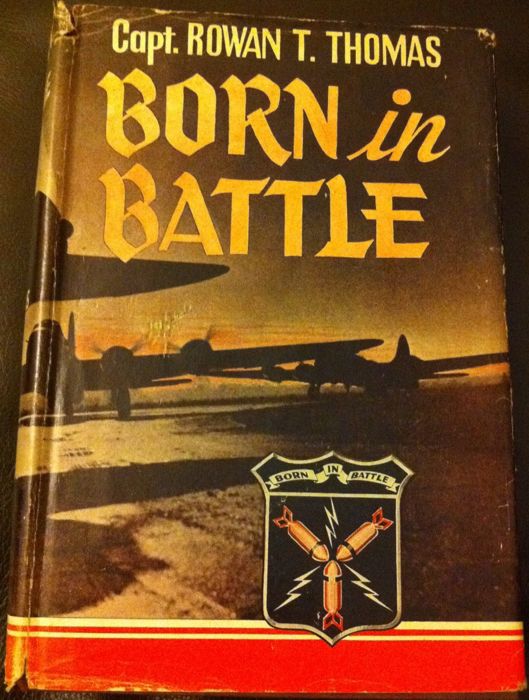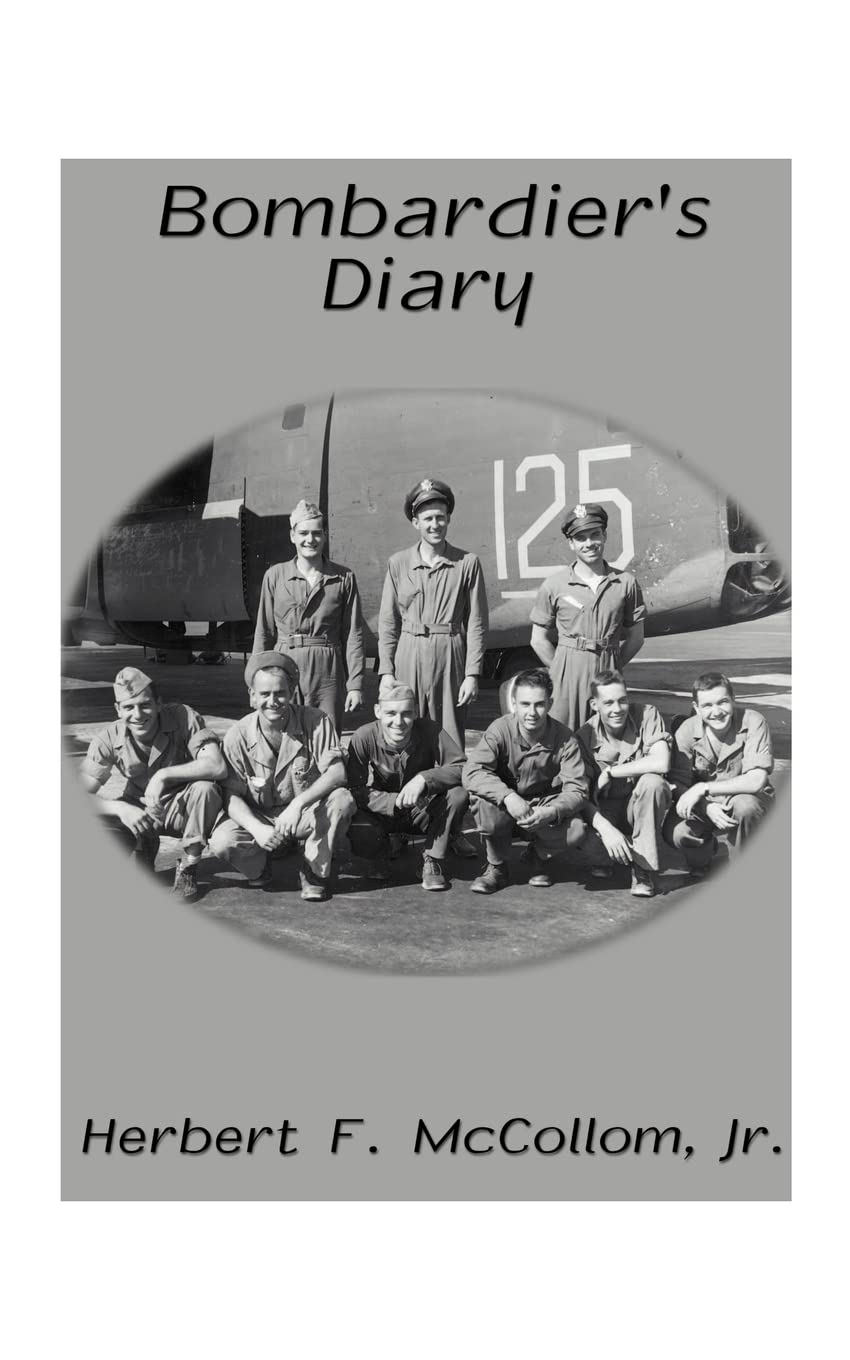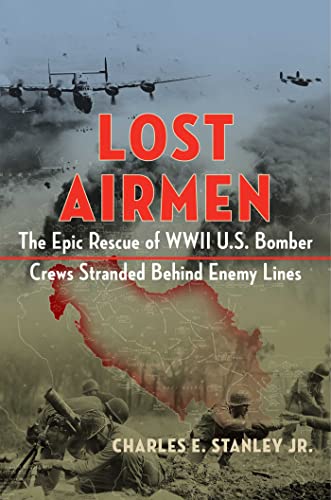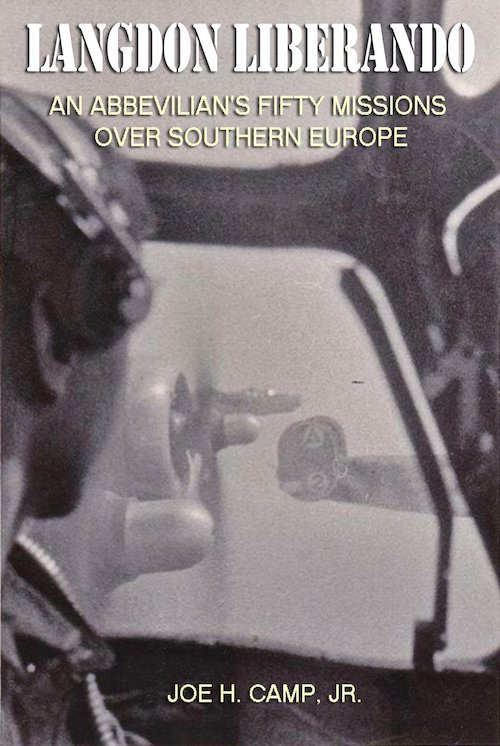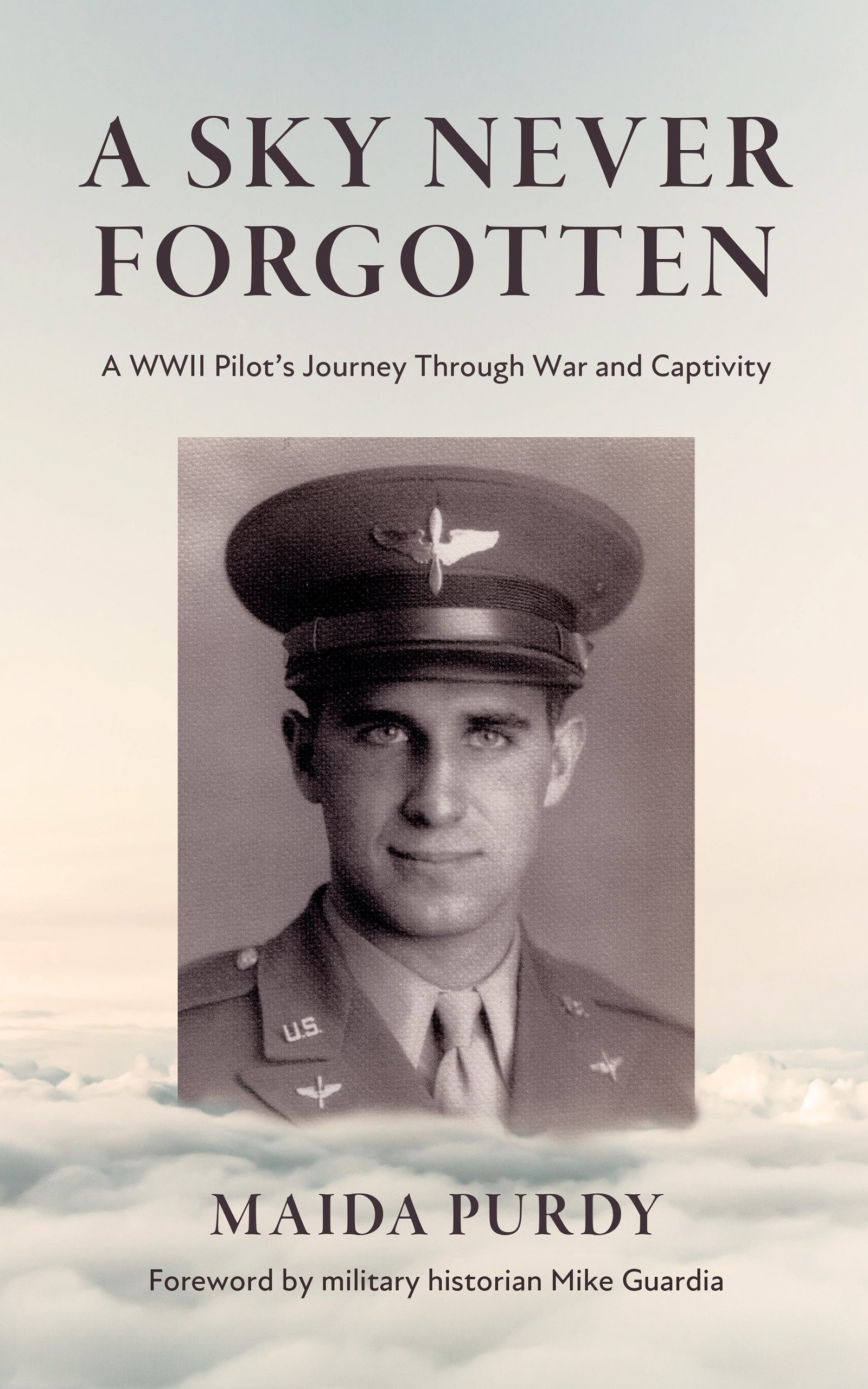Wiley L. Golden and Air Raid
Wiley L. Golden was on the HQ staff. He wrote the following about "Air Raid."
The Dog That Made Corporal
His name was "Air Raid:" a dark brown haired mongrel dog that saw service with both the enemy and Allies during World War II. Where and how he was given that name, no one knew in the 376th Bomb Group.
Air Raid joined our outfit in Solluch, Egypt, at the time British General Bernard Montgomery and his Eighth Army were striving desperately to hold in check the famed Afrika Korps. As a group of British soldiers was passing our base, the dog leaped form one of the convoy trucks and headed straight for the mess tent. He probably had tired of English chow and wished to sample the Spam served almost daily. To this, he was more than welcome!
Air Raid was soon adopted by every G.I. and officer on the field, and seemed to enjoy immensely his transfer to the then United States Air Corps. He became part and parcel of the 376th which was the first heavy bombardment unit to set foot on the African continent. Later we were told by Royal Air Force personnel that Air Raid earlier in the war had also been a mascot of a German unit and had the habit of sauntering leisurely between enemy and British held positions. It didn't make any difference to Air Raid so long as the food served in the camps was to his liking. But once among the Americans, the dog stayed with us from 1942 to 1945. No one bothered to guess Air Raid's approximate age, but we surmised in 1942 that he was around three years old.
Early every morning, Air Raid would trot out to the field to join the mechanics working on the B-24's, stretch out on the sand under a hot desert sun and snooze comfortable. As a truck made its rounds to pick up the G.I.'s for noon chow, he, too, would hop in to be driven to the mess tent. Then back out onto the field for the afternoon's labor.
At night, Air Raid shared any tent, and often changed his sleeping quarters three or four times to suit his fancy. We knew definitely that he would not stand for loud snoring or wheezing. Regardless of the many fleas that were carried by the mascot, he was nevertheless always welcome to the tents in the area, although the next morning, you could see the men upon rising scratching themselves and airing blankets on the tent ropes.
It seemed that after a while, Air Raid became restless to take off with some of the crews readying for flights. One crew member call "Smitty," especially fond of the dog, decided to sneak him along on a mission. Air Raid willingly went through the bomb bay doors into the rear of the bomber. The pilot did not know that an additional passenger had come aboard. The attack for that day was more or less one of the easy "milk-runs" and crew members knew that Air Raid would fare alright. After that first mission, the dog took to the air like a duck to water, but his missions were carefully picked, without the pilots' knowing. All made certain that Air Raid would not encounter severe and heavy flak. He got to know the Mediterranean and Adriatic coastlines well, and soon had enough missions to his credit to have been awarded the Air Medal with clusters.
After a year's stay at Solluch, the 376th moved to Benghazi, Libya to aBritish field named Berka #2. Here preparations were made for the now famous low-level attack on the Ploesti oil refineries in Roumania on August 1, 1943. Low-level practice flying was the order of the day, and Air Raid also practiced and participated in these flights. Although during these sessions the target was unknown and, it is believed, that if Air Raid had sensed the danger in store for all who participated, he would have readily gone back to the ground forces. The dog was not taken on this mission which was over the hottest flak target in all Europe, a mission later termed as "suicidal."
While during the stay in Africa, Air Raid had an utter dislike for the Arabs, and when one would approach the camp to sell grapes or melons, the mascot could not resist the chance to tear at the vendor's sack-like garments and chase him off the field. He naturally sensed that the Arabs did not belong to the 376th. Also during that period, natives were employed by the Germans for espionage work, and for all we know, Air Raid may have chased away many an agent under the guise of hawking fruit.
After Italy capitulated to the Allies in 1943, we moved to that country and set up a base near a small town called San Pancrazio. Air Raid was at home among the Italians, which led some of us to believe that perhaps at one time he had belonged to an Italian unit. While there, the men started to adopt stray dogs that wandered onto the field. They not only ate with the men but slept also in the bunks. Fleas were having a field day throughout the group until the medics decided to step in and curb the many pets in the area for hygienic reasons. It had become a red letter day for all dogs!
One morning while the men were working on the planes which were placed quite a distance from the tent area, a truck driven by a Corporal and staffed by an able PFC, started making its rounds, picking up every dog in sight. Among those "captured" was Air Raid, to be taken along and probably destroyed with the others. A few G.I.'s spotted Air Raid among the howling and barking prisoners. An alarm immediately sounded and spread to all parts of the base that Air Raid was en route to his execution. This was too much for members of the 376th to bear regardless of who issued the orders to pick up the dogs. All work immediately ceased with mechanics dropping tools and running to the dog's rescue. The shouting of the G.I.' s and Officers alike at the moving truck caused the driver to come to a stop. It was not Air Raid's life that was now in peril, but the two men who manned the truck.
Angry hands snatched the two from the cab while they paled under the many curses and threats. Someone even mentioned that they should be strung up on the nearest olive tree. The two unfortunate men stammered and incoherently explained that they were not at fault but that orders had been issued by the medical officer and adjutant. A detail immediately formed and headed for the commanding officer's quarters. Upon hearing the pleas of the men that Air Raid was a veteran of the Group and a decided morale asset to the unit, the commander countermanded the order, setting all dogs free. One stipulation was made, however: All dogs would have to be deloused at least once a week to remain in the area.
Plans were now made to add Air Raid's name to the roster with the grade of Corporal, to make certain that the dog was a full fledged member of the group to avoid any similar occurrence of the kind that almost resulted in his demise. After a few days, Air Raid was issued his stripes and the men painted them boldly on the dog's body. Sergeants suggested that Air Raid should even merit a lieutenant's salute. Thus, Air Raid, we believe, became the only canine corporal in the USAF, entitled to wear all decorations which were awarded to the 376th, but we could never figure out how these could be painted on his body.
Air Raid was not permitted to return to the states when the 376th returned home in 1945 to start practice on the new B-29's, but we're willing to bet that a few of his friends managed to sneak him aboard when the West Point sailed out of Taranto Harbor for the States. We wouldn't be surprised.
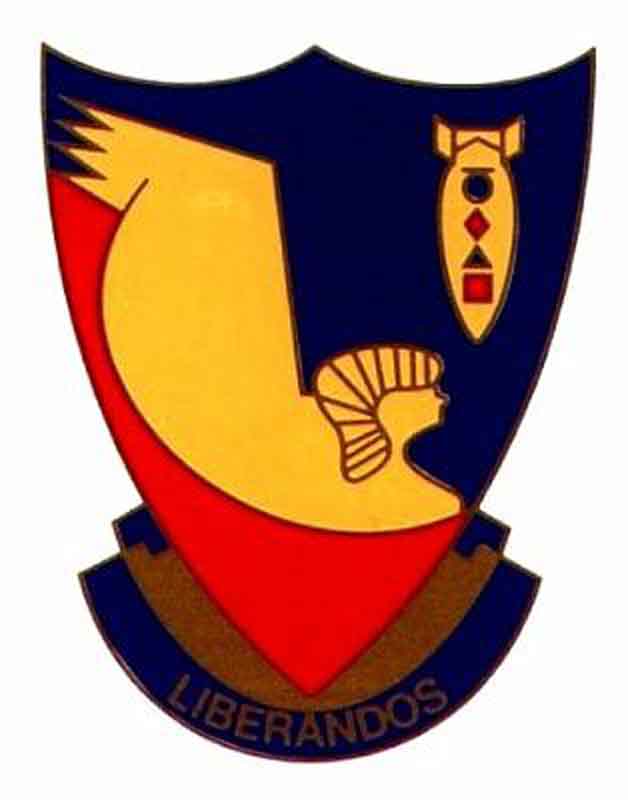
The website 376bg.org is NOT our site nor is it our endowment fund.
At the 2017 reunion, the board approved the donation of our archives to the Briscoe Center for American History, located on the University of Texas - Austin campus.
Also, the board approved a $5,000 donation to add to Ed Clendenin's $20,000 donation in the memory of his father. Together, these funds begin an endowment for the preservation of the 376 archives.
Donate directly to the 376 Endowment
To read about other endowment donation options, click here.
Reunion
NOTE change in the schedule !!
DATES: Sep 25-28, 2025
CITY:Rapid City, SD
HOTEL: Best Western Ramkota Conference Hotel; 2111 North LaCrosse St., Rapid City, SD 57702; 605-343-8500
Click here to read about the reunion details.
